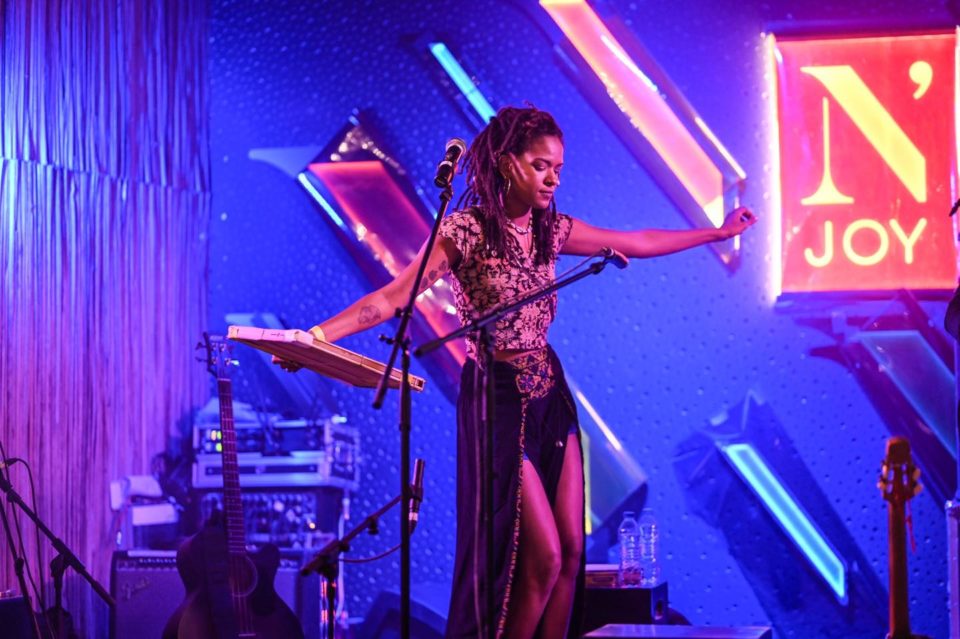Our Favorite Discoveries from MOMIX 2022 in Mauritius
The Moris Music Expo’s fourth edition shone a light on the dedicated, diverse forces who are banding together across countries
Mauritius is a wholly smaller country than India, but it shares a multicultural, multi-tiered music industry that reflects its diversity. In addition to French roots, African legacy and creole ethnicity, there’s a sizable Indian heritage as well.
Often, you end up meeting people who can speak a bit of Hindi along with their French, creole and English. It’s a multiplicity that Mauritians carry with pride into their art, as witnessed at the three-day MOMIX – Moris Music Expo, held between September 30th and October 2nd with workshops, panel discussions and vibrant showcase performances by artists from the region.
It’s held at a much smaller scale than most music trade events – Chennai-headquartered IndiEarth Xchange comes to mind closer home, but even that had a larger scope – and the Indian Ocean territories such as South Africa, Reunion Island, Rodrigues, Madagascar and India remain faithful supporter. MOMIX also pulled in star performers such as Cheikh Ibra Fam from Senegal, Ntunja from South Africa and Filter Coffee from India, among others for electrifying sets, all of which made it a celebration in the evenings.
Over the course of three days, here’s what we came away with from MOMIX 2022:

Seggae music is alive and well
Championed in the mid-Eighties and Nineties by the late pioneer Kaya, seggae is the mix of Mauritius and Reunion Island’s traditional sega style and reggae, known for its conscious lyricism. While Kaya was the torchbearer, there are several artists still carrying forward the fusion in different ways, including Blakkayo. Others are borrowing from seggae and making their own amalgam, including Sayaa.
Bhojpuri music gets a seat at the table
Indentured laborers from India migrated to Mauritius from the 1830s, thus changing the social fabric of the country. The Bhojpuri Boys – led by Kishore Taucoory – have been plying the people of Mauritius with their music for cultural gatherings and celebrations (but also songs of their own history) with several albums to show for it. In a panel discussing Bhojpuri music and the Bhojpuri community in Mauritius – with academician Sarita Boodhoo and Reeta Poonuth from the school of Geet-Gawai – we got a glimpse of India’s traveling imprint on the world.
Rock is alive
Jimmy Veerapin of the Underground Rock Festival in Mauritius has the distinction of being the only event for heavy music and as is the case in several parts of the world, rock and metal bands are pretty much enjoying underdog status. While there’s metal bands like Revolt, we also caught powerful seasoned artists Vincent Brasse knockout a psychedelic set, while Madagascar trio No Mady sang for the environment with an urgency you love to see.

India is not in the same boat
India was repped not just by New Delhi’s Bawari Basanti and Mumbai-based Filter Coffee with swirling electronic-fusion vibes, but also two Chennai-based seasoned music professionals – Sonya Mazumdar of Earthsync and Edison Prithviraj who hosts the Global Isai Festival and runs Unwind Center. They imparted something we already now – that India is big, unorganizable and ever-changing to ever provide a larger answer of “what’s happening.” So the challenges are very different compared to Mauritius, but the delegates remained steadfast in their support for artists from the Indian Ocean region.
They look to South Korea and soft power
MOMIX director Stephan Rezannah spoke in a panel about how they’ve been able to showcase their soft power via private players like alcohol companies. Just as Indian states like Nagaland play up their music and culture for soft power, it’s all following in the footsteps of the massive success of South Korea’s music and film/T.V. industries, funded by the government. Rezannah says Mauritius gets some support from the government but since they’re operating at 20 percent of their original budget, they might only see the good effects of promoting music as an export in about 10 years’ time.
Funding and sustenance for festivals
Mauritius hosts different festivals such as MAMA Jazz, Dombeya and the Reggae Donn Sa. The pandemic was an obvious roadblock, but festivals say without funding they’re taking the route of not necessarily hosting their events annually or converting it into different formats, like week-long indoor club shows. Even as their neighbors in Reunion host well-attended (and funded) festivals such as IOMMA and Sakifo, MOMIX, Mauritius aims to find some structure and formalization of the music world, bringing all players – small and seasoned – on the same platform.

Streaming and the Newskool
The story of streaming successes – especially during the pandemic – has been seen all around the world and Mauritius is no different. Among the most popular labels right now are Lyonsquad and Virus records, with artists like Yohan, Bomboclak and Donovan amassing millions of streams and views, thanks in part to TikTok and YouTube and just tapping into a globally relevant sound. Like bedroom producers in India, they can live off the deals and royalties for dancehall, ragga and sega music.
The power and pride of locals and their love for the earth
From powerful performances by singer-songwriters like Sibu Manai, Emlyn, sister duo Solah to jazz-fusion act Qashmere, folk act Wendada, high-energy sets by Fayazer and El Tabla, MOMIX’s performers took a lot of pride in telling their own stories and pushing back against increasing environmental damage to the region.
Over at the conference, preservation remained a talking point, with labels such as Kreol Art and Babani records finding their own ways to make sure Mauritius’ music tradition is not forgotten – whether that involves pressing vinyls and cassettes to uploading recordings to streaming platforms for longevity.




